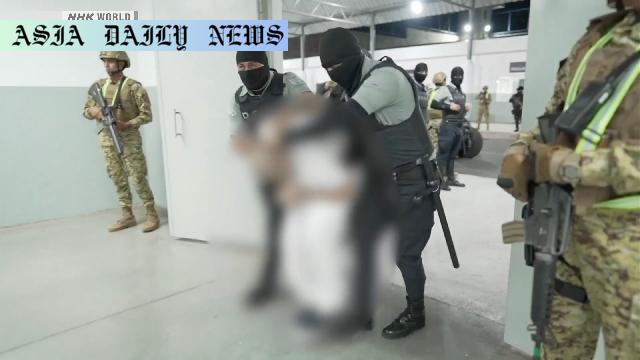Deportation: US deported 238 alleged gang members, but a probe found no substantial criminal backgrounds, sparking human rights backlash.
US authorities deported 238 alleged gang members under controversial policies.
The New York Times found little evidence supporting these gang allegations.
El Salvador accepted deportees but organized their imprisonment.
Critics have raised human rights concerns over these deportations.

Overview of Deportation Policies and Allegations
The deportation policies implemented by the Trump administration have stirred significant controversy and global attention. In 2023, the United States deported 238 individuals, branding them as gang members associated with a Venezuelan gang designated as a terrorist organization. This move utilized legislative tools like the Alien Enemies Act, previously employed during World War Two for immigration crackdowns. Despite the government’s intent to ensure national security, investigative reporting, particularly by The New York Times, unveiled significant discrepancies in these allegations, raising concerns regarding the legitimacy of deportation practices and their long-term implications.
Investigative Findings and Backlash
The New York Times conducted an in-depth investigation into the deportees’ backgrounds, relying on court records and corroborative documents. Their research revealed a startling lack of evidence linking the majority of these deportees to criminal or gang-related activities. The findings expose gaps in the verification processes used by the US administration, suggesting that many individuals designated as threats may not necessarily fit this profile. Among those deported was an individual who had entered the US harboring dreams of becoming a musician—illustrating the potential misclassification of certain migrants.
International and Human Rights Ramifications
Beyond the lack of supporting evidence, the deportations have led to significant human rights criticisms from organizations globally. El Salvador, which agreed to accept the deportees, responded by incarcerating these individuals in its prisons. This further compounded the challenges faced by the deported individuals, who now face uncertain futures in an unfamiliar and often hostile environment. Meanwhile, human rights advocates have criticized the deportations, labeling them a breach of international migration policies and calling for more robust systems to assess migrants’ backgrounds before making life-altering decisions.
US Government’s Justification
The Trump administration defended its actions as part of larger efforts to secure American borders and protect citizens from external threats. Officials emphasized the need for exceptional measures to address perceived risks posed by undocumented immigrants, especially those classified as gang members. However, the lack of transparency and questionable evidence has sparked debates regarding the moral and legal implications of such concentrated efforts to expel certain groups.
Calls for Policy Reform
As backlash increases, demands for immigration policy reform have grown louder. Critics argue that current approaches often lack nuance and can disproportionately impact vulnerable populations who may not pose any substantial threat to society. Human rights organizations have proposed alternatives, such as enhanced vetting procedures and collaboration with international bodies to address immigration challenges more compassionately and effectively. Moving forward, a balanced approach is necessary to ensure public safety without compromising the dignity and rights of migrants.
Commentary
Complexities of Deportation Policies
The deportation of hundreds of migrants under the Trump administration highlights the complex interplay between national security priorities and human rights considerations. While the need to protect citizens is undoubtedly a valid concern, the evidence presented in the deportation cases raises questions about the objectivity and ethics of these policies. Deportation is not merely a bureaucratic decision; it is a life-changing event for those involved, often displacing individuals who sought refuge or better opportunities in another country. Overlooking their personal contexts undermines the ethos of fairness and justice.
The Importance of Accuracy in Allegations
Labeling migrants as gang members without robust evidence risks perpetuating stereotypes and fostering unnecessary fear within communities. As The New York Times investigation revealed, many of the deportees had minimal—if any—links to criminal activities. This indicates a pressing need for comprehensive assessments and transparent processes in immigration policies. Deportations based on invalid assumptions can lead to irreversible consequences, such as separating families or violating the basic rights of individuals who may have been unfairly categorized as threats.
Humanitarian and Ethical Considerations
Beyond the legal questions, there is a moral imperative to ensure that deportation policies respect the basic rights and dignity of migrants. Handling cases without thorough due diligence not only harms individuals but also diminishes the credibility of governmental institutions. The backlash from human rights organizations underscores the urgent need for reform, emphasizing compassion and accountability over blanket measures. Addressing global migration issues requires a coordinated and humane approach, and the current strategies fall short of such ideals.


